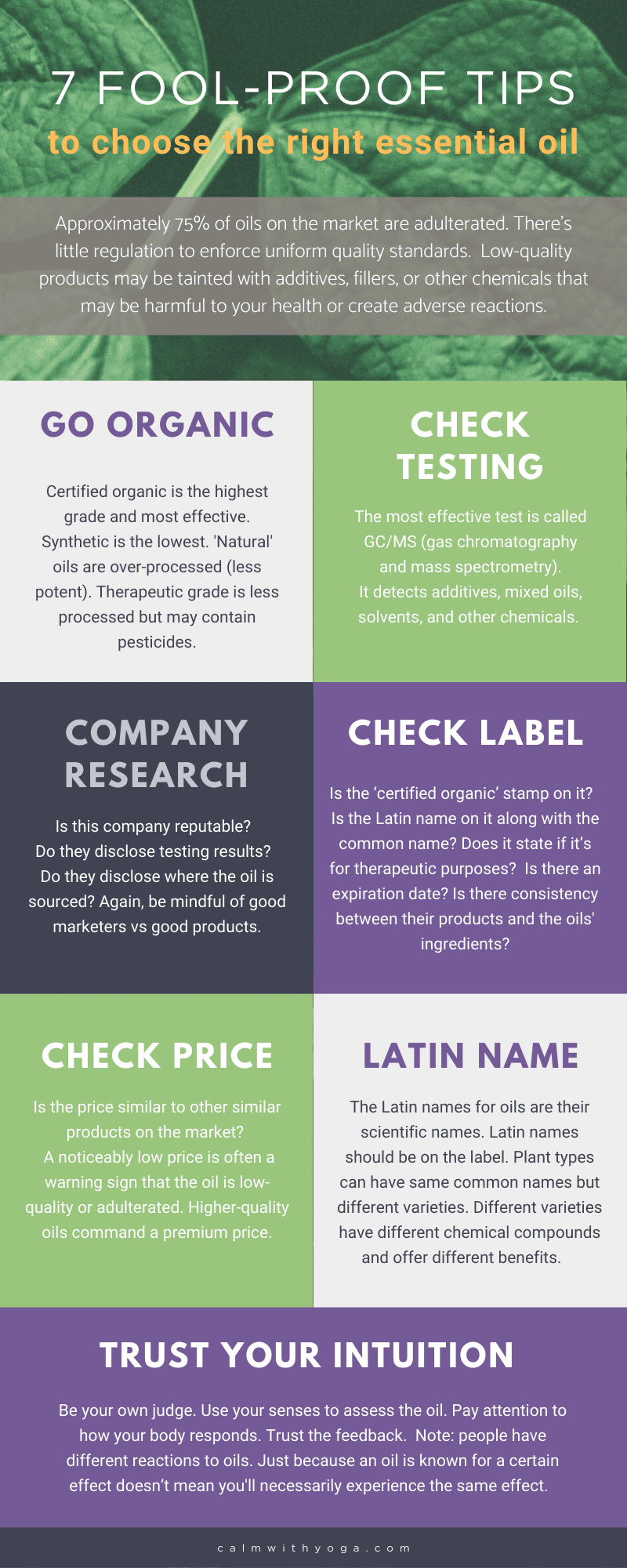Why People Are Turning To Essential Oils For Nausea Relief
Whether it be morning or motion sickness, postoperative nausea, or unexplained queasiness, it’s never fun.
But before you reach for those over-the-counter options at the drug store you may want to try natural remedies like essential oils.
Over-the-counter nausea meds might come with some undesired symptoms like drowsiness, dry mouth, muscle spasms, constipation, indigestion, and acne.
When used correctly and safely, essential oils (EOs) offer little to no adverse side effects.
EOs are highly concentrated plant compounds extracted from various parts of trees, plants, flowers, nuts, seeds, and even fruit.
They’ve been used for hundreds of years by multiple world cultures due to their medicinal and healing potential.
Their therapeutic application is referred to as aromatherapy.
EOs have been shown to help with:
- Pain relief
- Compromised immunity
- Headaches
- Allergies
- Colds, sinus, and coughs
- Stress and anxiety
- Insomnia
How EOs Work To Relieve Nausea
EOs are potent and effective.
Just a few drops can offer multiple active compounds that interact and impact the body often in a matter of minutes.
These active compounds enter the body and bloodstream via inhalation, topical application, and oral ingestion.
Please note here that oral ingestion of EOs should be done with caution and under the supervision of a health care provider or experienced aromatherapist. This is especially true if you suffer from any medical condition.
Many EOs are known antiemetics which means they help prevent or relieve nausea and vomiting.
Certain EOs can also work with the body to alleviate heartburn and other digestive problems that often contribute to feelings of queasiness.
The Best Essential Oils For Nausea
Ginger oil (Zingiber officinale)
- Analgesic
- Antibacterial
- Antiemetic
- Anti-inflammatory
- Antioxidant
- Antispasmodic
- Digestive aid
- Tonic for the intestinal tract
In Ayurvedic medicine, ginger essential oil is used to address intestinal and liver issues, gas, upset stomach, and anemia.
This root is also widely used to aid with dizziness, morning sickness, joint pain, and fatigue.
A 2017 article published in the Journal of Alternative & Complementary Medicine found ginger oil to significantly lower postoperative nausea and vomiting in abdominal surgery patients. (1)
Peppermint oil (Mentha piperita)
- Analgesic
- Antibacterial
- Antiemetic
- Gastrointestinal antitoxic
- Anti-inflammatory
- Antispasmodic
- Digestive aid
Peppermint essential oil is a wise choice for aiding bloating, stomach aches, heartburn, and abdominal pain.
Peppermint tea is a good idea whenever your gut feels a little queasy.
A 2013 study researching the effects of peppermint and spearmint on chemotherapy-induced nausea and vomiting found both oils to significantly reduce the intensity of symptoms compared to the control group. The cost of treatment was also reduced with the use of these essential oils. (2)
Lemon oil (Citrus limon)
- Antibacterial
- Antifungal
- Antioxidant
- Antiemetic
- Antispasmodic
- Immune system booster
Lemon essential oil has long been known as a remedy for morning sickness amongst pregnant women.
A 2014 study found lemon oil to effectively reduce pregnancy-related nausea and vomiting compared to the control group who received a placebo. (3)
Other oils that may be helpful are:
- Fennel oil
- Spearmint oil
- Grapefruit oil
- Chamomile oil
- Lavender oil
- Cardamom oil
- Frankincense oil
The Pros & Cons Of EOs For
The Pros:
- EOs are potent – a little goes a long way. You only need a few drops to help ease your queasiness.
- High-quality, pure essential oils possess the highest therapeutic and medicinal value.
- If used with care and mindfulness EOs are relatively low-risk and offer little to no side-effects when compared to over-the-counter drug store options.
- You can mix and blend various EOs together to enhance and amplify their antiemetic effects.
The Cons:
- EOs are potent – using too much or incorrect dosage can lead to making symptoms worse.
- Many EOs are diluted and contaminated with potentially harmful chemicals and solvents. Make sure you’re getting the highest grade quality.
- EOs aren’t cure-alls, especially if you’re experiencing severe nausea or if it’s related to a medical condition. (If you’re dealing with a persistent or unusually acute bout please consult with your physician or medical provider prior to using them.)
- There’s is very little research on the effects of EOs on nausea. More research is needed to reach definitive conclusions.
How To Choose The Right High-quality EOs For
Since many EO products on the market are diluted and contaminated its important to know how to choose the highest quality options as they will be the ones to offer the most medicinal effects.
Here are 7 tips to help you:
- Look for certified organic therapeutic grade essential oils.
- Check that proper testing has been done.
- Research the company. Is it reputable?
- Check the label. Is all the relevant information there?
- Check the price. Too cheap is a red flag.
- Check the Latin name. This is the plant’s actual botanical name.
- Check in with yourself. Your body will give you feedback so trust your intuition!
How To Use EOs For Nausea Relief
You can use EOs in the following ways:
Topical application involves applying directly to the skin with a carrier oil like coconut oil or jojoba oil to dilute the active compounds.
Inhalation involves using an oil diffuser or inhaler to breathe in the aromatic compounds.
This has been shown to be effective in treating nausea.
Trying blending the following into an inhaler to conveniently carry around in your purse or keep by your desk:
- 10 drops ginger oil
- 10 drops peppermint oil
- 10 drop lemon oil
Inhale as needed.
You can also incorporate this ritual into your breathwork or meditation practice.
REFERENCES
:
(1) https://www.liebertpub.com/doi/10.1089/acm.2015.0328
(2) https://www.ncbi.nlm.nih.gov/pmc/articles/PMC3562057/
(3) https://www.ncbi.nlm.nih.gov/pmc/articles/PMC4005434/














